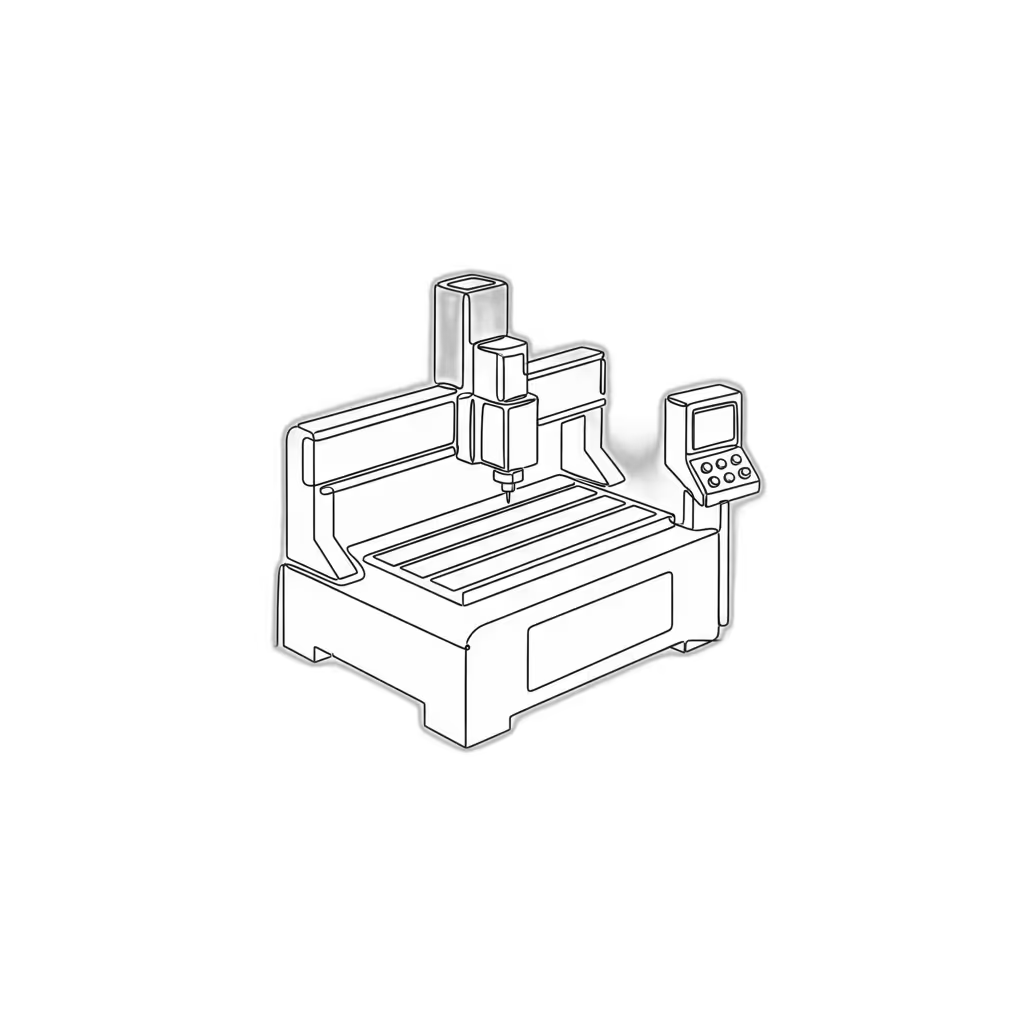






5-Star Valuation Services, Loved by Hundreds
Frequently Asked
Questions
No Frequently Asked Questions Found.
The appraisal process involves a comprehensive evaluation of various types of property, including real estate, artwork, collectibles, and specialized equipment. A qualified, independent appraiser conducts a meticulous examination that captures the item's precise market value, considering factors such as condition, age, and current market trends.
The core purpose of this appraisal is to create a transparent, credible record that meets stringent IRS guidelines. Donors must obtain a detailed report that includes a comprehensive property description, precise valuation methodology, and the specific date of valuation. The appraiser's professional certification and signature validate the document's integrity and accuracy.
Precision is paramount in this process. Inaccurate or incomplete appraisals can trigger potential audits, penalties, or outright denial of tax deductions. By adhering to IRS requirements, donors can confidently document their charitable contributions while maintaining full compliance with tax regulations.
Ultimately, an IRS Form 8283 appraisal serves as a critical bridge between charitable giving and tax reporting, providing a rigorous, objective assessment that protects both the donor's interests and the integrity of the tax system.
The process encompasses a thorough examination of complex machinery such as precision lathes, advanced CNC machines, drilling equipment, surface grinders, and various fabrication tools. Professional appraisers bring deep technical expertise to analyze these intricate pieces of equipment, considering multiple factors that influence their overall worth and operational effectiveness.
Appraisals deliver critical insights for business decision-makers, offering a detailed perspective on equipment valuation that addresses multiple strategic considerations. These assessments provide comprehensive information about current market value, potential replacement costs, operational condition, and long-term investment potential.
The evaluation process involves sophisticated analytical techniques that examine technical specifications, current market conditions, equipment age, maintenance history, and technological relevance. By integrating detailed mechanical assessment with robust economic analysis, these appraisals create a holistic view of metalworking equipment's true economic value and potential.
Stakeholders leverage these professional assessments for diverse purposes, including financial planning, insurance documentation, potential sale or acquisition strategies, and comprehensive asset management. The nuanced information generated helps organizations make informed decisions about equipment maintenance, replacement, and strategic investment in their manufacturing capabilities.
Most online appraisals begin with detailed documentation collection, where equipment owners submit high-resolution photographs, manufacturer specifications, maintenance records, and operational history. Professional appraisers utilize these digital inputs to conduct thorough initial evaluations of metalworking machinery.
For more complex assessments, live video consultations have emerged as an effective alternative to traditional in-person inspections. Using platforms like Zoom or Google Meet, appraisers can conduct real-time equipment examinations, allowing for interactive discussions and immediate clarification of technical details.
The digital appraisal process offers significant advantages, including enhanced convenience, reduced geographical limitations, and faster turnaround times. Businesses can now obtain professional equipment valuations without disrupting operational workflows or incurring extensive travel expenses.
Qualified appraisers employ standardized methodologies to ensure accuracy and compliance with professional valuation standards. The comprehensive digital approach allows for meticulous assessment of equipment condition, market value, and potential depreciation factors, delivering reliable and detailed valuation reports.
While online appraisals provide remarkable flexibility, they are most effective when equipment owners provide comprehensive and transparent documentation. Clear, detailed information remains crucial to generating precise and credible equipment valuations.
Machinery appraisers focus on large-scale industrial equipment like lathes, mills, and CNC machines. Their comprehensive approach examines equipment functionality, technological sophistication, maintenance history, and market positioning. By analyzing performance metrics and current technological trends, they determine accurate equipment valuations that reflect true economic value.
Tool and die appraisers concentrate on manufacturing precision instruments, evaluating both physical condition and operational capabilities. Their expertise requires understanding intricate manufacturing processes, tool compatibility, and the specific engineering requirements of different production environments. These professionals assess tools' potential for continued productive use and their alignment with current manufacturing standards.
Fabrication equipment specialists evaluate cutting-edge technologies like plasma and laser cutters, press brakes, and specialized manufacturing systems. Their assessments incorporate industry trends, technological advancements, and equipment efficiency metrics. By examining operational history and potential future performance, they provide nuanced valuations that consider both current market conditions and emerging technological landscapes.
Welding equipment experts analyze arc welders, MIG/TIG systems, and plasma welding technologies. Their evaluations explore equipment age, technological capabilities, compliance with industry standards, and potential for continued operational effectiveness. These appraisers understand the critical role welding equipment plays in manufacturing precision and safety.
Specialized appraisers develop deep expertise in niche sectors like automotive, aerospace, and custom fabrication. Their targeted knowledge allows for exceptionally detailed assessments that consider unique technological and operational requirements specific to their respective industries.
Ultimately, these diverse appraisal professionals provide critical insights that help businesses make informed equipment investment and maintenance decisions, bridging technical understanding with economic valuation strategies.
Financial reporting demands precise asset valuation, and metalworking equipment appraisals deliver an objective assessment of current market value. This transparency helps businesses maintain accurate balance sheets, supports equity financing efforts, and provides stakeholders with reliable information about the company's asset portfolio.
Tax compliance represents another crucial dimension of equipment appraisals. When equipment is purchased, sold, or donated, a professional valuation becomes instrumental in navigating complex tax regulations. For significant asset donations or strategic tax planning, a comprehensive appraisal ensures businesses meet regulatory requirements while optimizing potential tax benefits.
Insurance coverage relies heavily on accurate equipment valuation. Without a current, professional appraisal, businesses risk being underinsured, potentially facing substantial financial exposure in case of equipment damage, loss, or unexpected events. A detailed appraisal provides insurers with precise information, enabling appropriate coverage that truly protects the business's economic interests.
During financing and loan negotiations, equipment appraisals serve as a critical credential. Lenders depend on these professional assessments to evaluate collateral value, which directly influences loan terms, eligibility, and overall financing potential. A robust, credible appraisal can significantly streamline the lending process and enhance a business's financial flexibility.
Buy-sell agreements, mergers, and business transitions also benefit tremendously from professional equipment appraisals. These evaluations provide an impartial, comprehensive perspective on asset value, mitigating potential stakeholder disputes and facilitating smoother negotiations. By establishing a clear, defensible value, appraisals support fair and transparent business transactions.
Ultimately, a metalworking equipment appraisal transcends a mere financial exercise. It represents a strategic tool that supports financial integrity, regulatory compliance, and informed business decision-making across multiple critical operational dimensions.
What Makes IRS Form 8283 Critical for Metalworking Equipment Donations?
Donating metalworking equipment presents a strategic opportunity for tax optimization and community support. IRS Form 8283 serves as a critical documentation mechanism for charitable property contributions exceeding $500, enabling donors to navigate complex tax regulations while maximizing potential benefits.
Key Components of IRS Form 8283 for Metalworking Equipment Donations
- Valuation Substantiation: Provides a detailed accounting of the equipment's fair market value through professional appraisal
- Compliance Verification: Ensures donors meet IRS documentation requirements for charitable property contributions
- Tax Deduction Validation: Enables donors to claim appropriate tax benefits based on precise equipment valuation
Documentation Requirements
Appraisal Specifications
- Mandatory for donations valued over $5,000
- Must be conducted by a qualified industry professional
- Requires comprehensive details including:
- Equipment type
- Model specifics
- Current condition
- Detailed market value assessment
Community and Financial Impact
Beyond tax advantages, metalworking equipment donations contribute significantly to local educational and vocational training programs. Donors simultaneously support skill development initiatives while achieving meaningful financial benefits through strategic charitable giving.
Strategic Considerations
- Understand precise IRS valuation guidelines
- Obtain professional equipment appraisal
- Maintain comprehensive donation documentation
- Consult tax professionals for personalized guidance
Informed donors can transform equipment donations into strategic financial and community investments, leveraging IRS Form 8283 as a powerful tool for responsible charitable contribution.
Key Valuation Factors for Metalworking Machinery
When appraising metalworking machinery, several critical factors must be considered to determine an accurate and fair market value. Understanding these elements is essential, particularly when preparing documentation for IRS Form 8283 related to non-cash charitable contributions.
Critical Valuation Parameters for Metalworking Machinery
- Equipment Condition
- Physical state represents a primary valuation driver
- Comprehensive assessment includes:
- Visible wear indicators
- Comprehensive maintenance history
- Potential repair requirements
- Well-maintained machinery consistently commands higher market value
- Equipment Age
- Technological advancement significantly influences valuation
- Newer models with contemporary technological features typically receive higher appraisals
- IRS depreciation schedules provide additional valuation context
- Technical Specifications and Features
- Advanced capabilities directly impact equipment valuation
- Key evaluation criteria include:
- Precision metrics
- Operational efficiency
- Unique technological capabilities
- Equipment exceeding standard industry specifications receives premium valuation
- Current Market Demand
- Manufacturing sector trends critically influence equipment value
- Macroeconomic conditions create substantial valuation variations
- High-demand machinery can experience significant value appreciation
- Comparative Sales Analysis
- Recent sales data provides objective valuation benchmarks
- Comprehensive research involves:
- Industrial databases
- Specialized market reports
- Comprehensive sales tracking
- Modifications and Upgrades
- Custom enhancements can substantially increase equipment value
- Valuable modifications typically improve:
- Operational efficiency
- Technological capabilities
- Overall market competitiveness
By meticulously evaluating these comprehensive valuation factors, professional appraisers can provide a nuanced and accurate assessment of metalworking machinery's true market value for IRS documentation purposes.
Why Professional Appraisal Matters in Equipment Donation
When it comes to equipment donation, particularly in the field of metalworking, the importance of a professional appraisal cannot be overstated. Donations of equipment can have significant tax implications for both the donor and the recipient, making an accurate and credible appraisal essential.
Key Benefits of Professional Equipment Appraisals
- Accurate Market Valuation: A professional appraisal ensures the equipment's value reflects current market conditions, which is critical when completing IRS Form 8283.
- Audit Protection: Precise valuations help donors avoid potential complications such as IRS audits or financial penalties.
Comprehensive Assessment Process
A thorough appraisal involves meticulous evaluation of several critical factors:
- Equipment condition
- Age and depreciation
- Current market demand
- Comparable equipment transactions
Strategic Advantages of Professional Appraisals
Organizational Benefits
Professional appraisals provide significant advantages to both donors and recipient organizations:
- Enhanced transaction credibility
- Streamlined donation acceptance
- Increased transparency
- Potential for future collaborative opportunities
Donor Reputation
By demonstrating commitment to thorough documentation and fair valuation, donors can:
- Build community trust
- Potentially generate positive publicity
- Establish themselves as responsible contributors
Ultimately, professional appraisals transcend mere monetary assessment, embodying a commitment to integrity and transparency in the equipment donation process.
Common Metalworking Equipment Eligible for Tax Deduction
When considering donations or the sale of metalworking equipment for tax purposes, understanding which items are eligible for tax deductions is crucial. The IRS recognizes several categories of metalworking equipment that can be appraised for Form 8283 purposes.
Key Categories of Metalworking Equipment for Tax Deduction
- Machining Equipment
Precision manufacturing tools including:
- Lathes
- Milling machines
- Drilling equipment
Valuation factors include model, condition, and age.
- Welding Equipment
Includes various welding technologies such as:
- MIG welders
- TIG welders
- Arc welders
Value determined by brand reputation, power output, and specialized features.
- Metal Cutting Tools
Essential metal fabrication equipment including:
- Saws
- Plasma cutters
- Waterjet cutting machines
Valued for accuracy, reliability, and technological sophistication.
- Presses and Stamping Equipment
Metal shaping and cutting machinery such as:
- Hydraulic presses
- Mechanical presses
Valuation depends on capacity and operational condition.
- Tooling and Fixtures
Supporting equipment including:
- Workholding fixtures
- Jigs
- Specialized cutting tools
Condition and usability significantly impact overall value.
- Inventory and Raw Materials
Additional items that may qualify for appraisal:
- Metal sheets
- Metal coils
Value fluctuates based on market demand and material costs.
Appraisal Considerations
Each equipment category requires a comprehensive appraisal to ensure IRS compliance and maximize potential tax benefits. Accurate documentation and expert evaluation are essential for a smooth deduction process.
The Comprehensive Appraisal Process: Step by Step
Understanding the Comprehensive Metalworking Equipment Appraisal Process
Navigating the appraisal of metalworking equipment for IRS Form 8283 requires a methodical and professional approach. Here's a comprehensive breakdown of the essential steps:
1. Initial Consultation: Setting the Foundation
- Establish clear communication between appraiser and client
- Define the specific purpose of the appraisal
- Gather comprehensive information about the metalworking equipment
- Discuss equipment history, condition, and documentation
2. Detailed Equipment Assessment
- Conduct thorough physical inspection of the equipment
- Evaluate overall condition and functional status
- Identify:
- Existing deficiencies
- Modifications
- Maintenance history
- Assess current marketability and potential value factors
3. Comprehensive Market Research
- Analyze recent sales data for similar equipment
- Examine current market conditions
- Consider:
- Industry-specific trends
- Economic impact on equipment valuation
- Comparable equipment values
4. Strategic Valuation Methods
Professional appraisers employ multiple valuation approaches to ensure accuracy:
- Cost Approach: Evaluates replacement or reproduction cost
- Market Approach: Compares similar equipment sales
- Income Approach: Assesses potential revenue generation
5. Precise Report Preparation
- Develop a comprehensive, IRS-compliant appraisal report
- Include:
- Detailed equipment description
- Valuation methodology explanation
- Substantiated value estimate
- Supporting documentation
- Ensure clarity and professional presentation
6. Final Review and Delivery
- Conduct meticulous report review
- Verify all information accuracy
- Provide clear explanation of findings to client
- Maintain transparency throughout the process
This systematic approach ensures a reliable, defensible valuation that meets both professional standards and IRS requirements.
Documentation Requirements for IRS Form 8283 Submission
Comprehensive Documentation for Metalworking Equipment Appraisal
When submitting IRS Form 8283 for metalworking equipment, comprehensive documentation is crucial for establishing the asset's fair market value and ensuring IRS compliance.
Essential Documentation Components
- Detailed Equipment Identification
- Complete make and model information
- Unique serial numbers
- Specific identifying features
- Current operational condition
- Comprehensive Photographic Evidence
- Multiple high-resolution images
- Full equipment views from different angles
- Close-up shots of critical components
- Documentation of any wear or damage
- Market Valuation Support
- Recent comparable sales data
- Current market pricing benchmarks
- Industry-specific valuation trends
- Equipment age and depreciation factors
- Professional Appraisal Report
- Appraiser's professional credentials
- Detailed valuation methodology
- Clear value determination for each item
- Signed and dated certification
- Ownership Verification
- Original purchase invoices
- Equipment titles
- Previous appraisal documentation
- Maintenance and service records
Meticulous documentation not only substantiates the equipment's value but also streamlines the IRS review process, providing transparent and credible information for tax reporting purposes.
How to Select a Qualified Metalworking Equipment Appraiser
Selecting a Qualified Metalworking Equipment Appraiser
Choosing the right metalworking equipment appraiser is critical for obtaining an accurate, compliant valuation that meets IRS reporting requirements. The following key factors will guide you in identifying a professional who can deliver a comprehensive and credible assessment.
Essential Selection Criteria
- Professional Credentials
Verify the appraiser's qualifications by looking for recognized certifications such as:- Accredited Senior Appraiser (ASA)
- Certified Equipment Appraiser (CEA)
- Specialized Industry Experience
Select an appraiser with:- Proven track record in metalworking equipment valuation
- Deep understanding of equipment types and market dynamics
- Multiple years of sector-specific experience
- Regulatory Compliance
Ensure the appraiser adheres to:- Uniform Standards of Professional Appraisal Practice (USPAP)
- Ethical appraisal guidelines
- Transparent valuation methodologies
- Documentation and Verification
Request:- Sample appraisal reports
- Client references
- Detailed valuation methodology explanations
- Professional Communication
Choose an appraiser who:- Communicates clearly and professionally
- Explains complex valuation concepts
- Remains accessible throughout the appraisal process
By carefully evaluating these critical factors, you can confidently select a metalworking equipment appraiser who will provide a reliable, thorough, and IRS-compliant valuation.
Navigating Valuation Challenges in Metalworking Equipment Donations
Key Considerations for Metalworking Equipment Donation Valuations
Donating metalworking equipment requires a strategic approach to valuation, particularly when preparing IRS Form 8283. Successful navigation of this process depends on several critical factors that ensure accurate and compliant asset assessment.
Comprehensive Condition Assessment
A thorough evaluation of equipment condition is fundamental to precise valuation. Key aspects include:
- Detailed examination of equipment age
- Comprehensive assessment of wear and tear
- Estimation of remaining useful life
- Professional categorization of condition (e.g., "like new," "good," "fair," "poor")
Rigorous Market Value Analysis
Determining market value requires multiple research strategies:
- Review recent auction results
- Analyze online marketplace pricing
- Consult industry-specific resources
- Compare similar equipment sales
Expertise in Metalworking Equipment
The complexity of metalworking machinery demands specialized knowledge. Critical considerations include:
- Understanding diverse equipment types (CNC machines, lathes, cutting tools)
- Recognizing technological advancements
- Tracking current industry trends
- Assessing specific market conditions
Comprehensive Documentation
Robust documentation is crucial for a successful valuation process. Essential records include:
- Original purchase receipts
- Detailed maintenance logs
- Historical sales and performance data
- Comprehensive equipment specifications
By meticulously addressing these key areas, donors can confidently navigate the complexities of metalworking equipment valuation, ensuring accurate reporting and maximizing potential tax considerations.
Critical Questions to Ask During Your Equipment Appraisal
Preparing for a metalworking equipment appraisal requires a strategic and thorough approach, especially when documenting for IRS Form 8283. Understanding the key factors that influence equipment valuation helps ensure a comprehensive and accurate assessment.
Key Evaluation Considerations
- Equipment Condition Assessment
A detailed physical examination of the equipment is crucial. Evaluate:
- Visible wear and tear
- Potential repair requirements
- Overall structural integrity
- Functional performance capabilities
- Comprehensive Equipment Documentation
Gather and organize critical equipment details, including:
- Manufacturer specifications
- Original purchase date
- Model and serial numbers
- Modification history
- Original purchase price
- Market Positioning Analysis
Understand the equipment's current market context by examining:
- Current industry demand
- Technological relevance
- Comparable equipment sales
- Potential replacement costs
Critical Documentation Factors
- Maintenance Records
Comprehensive maintenance documentation can significantly impact valuation. Provide:
- Regular service records
- Repair history
- Preventative maintenance logs
- Professional inspection reports
- Usage History Evaluation
Equipment usage directly influences its market value. Consider:
- Frequency of operation
- Working environment conditions
- Intensity of use
- Operational hours
Strategic Appraisal Preparation
By meticulously addressing these critical questions and gathering comprehensive documentation, you provide appraisers with the necessary insights for an accurate and defensible equipment valuation. This thorough approach supports potential tax deductions and provides a clear understanding of the equipment's true market value.
Ensuring Tax Compliance and Maximizing Your Deduction
Understanding IRS Form 8283 for Metalworking Equipment Donations
Navigating the complexities of non-cash charitable contributions requires careful attention to IRS regulations, particularly when donating metalworking equipment. Form 8283 is the critical document for reporting these valuable donations while maximizing potential tax benefits.
Qualified Appraisal Requirements
The IRS mandates specific guidelines for non-cash contributions exceeding $5,000:
- A qualified appraisal must be conducted by an experienced appraiser specializing in metalworking equipment
- Valuation must utilize established approaches:
- Cost Approach
- Market Approach
- Income Approach
Critical Documentation Considerations
Comprehensive documentation is essential for a successful tax deduction:
- Provide detailed equipment descriptions including:
- Current condition
- Equipment age
- Original purchase cost
- Include supporting evidence:
- High-quality photographic documentation
- Maintenance and service records
- Operational history documentation
Tax Filing Best Practices
To ensure compliance and maximize deductions:
- File tax returns within the appropriate deadline
- Retain copies of all appraisal documents and Form 8283
- Ensure the appraisal is completed before tax return submission
By meticulously following these guidelines, donors can effectively navigate the intricate process of non-cash charitable contributions, benefiting both charitable organizations and their own tax positioning.
View all Locations
APPRAISEITNOW APPRAISERS ARE BEST-IN-CLASS & CREDENTIALED BY LEADING APPRAISAL ORGANIZATIONS LIKE THE ISA, ASA, & MORE.







.svg)










